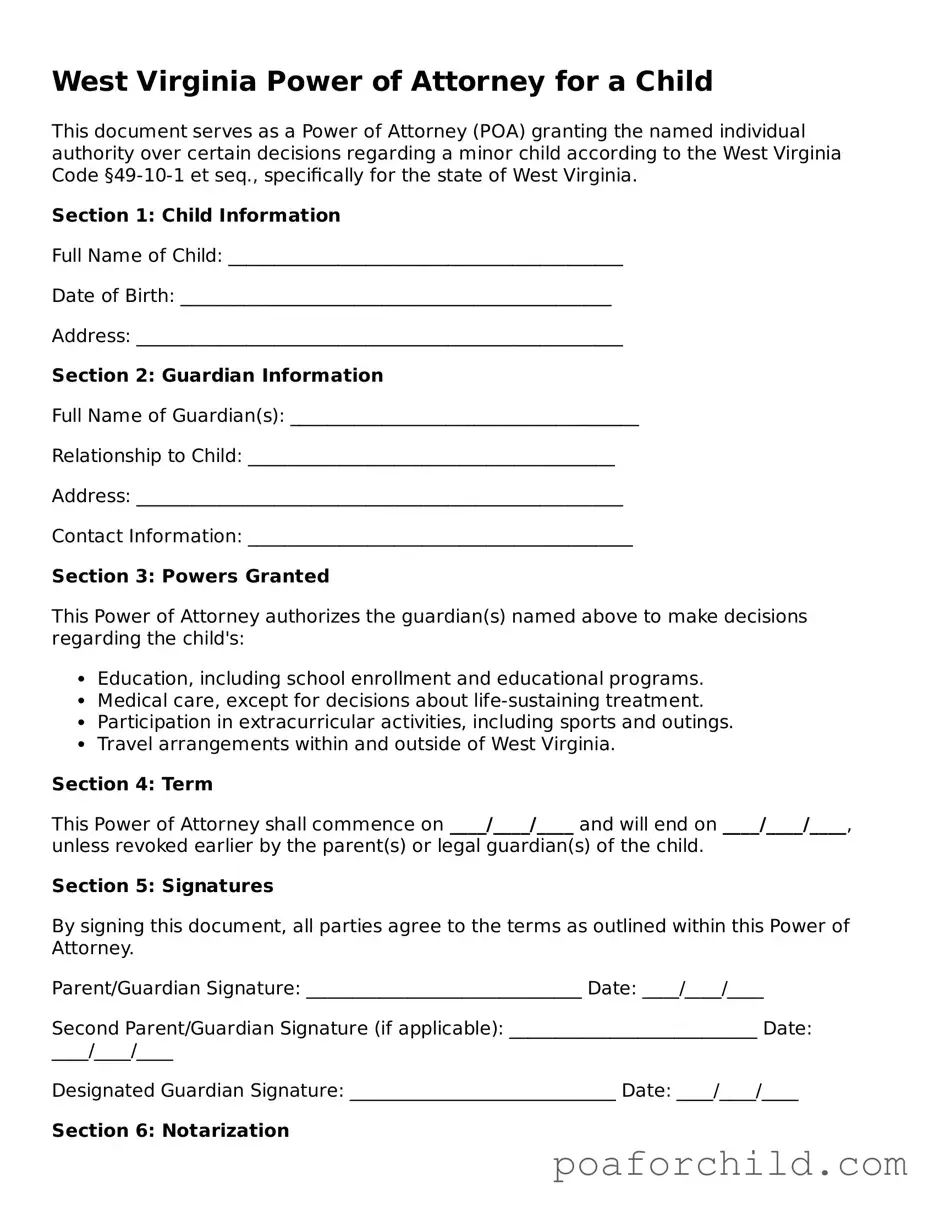Detailed Guide for Using West Virginia Power of Attorney for a Child
Filling out the West Virginia Power of Attorney for a Child form is a significant step towards ensuring the well-being and care of a child in the absence of their parents or legal guardians. This document grants a trusted adult the authority to make decisions on behalf of a child, covering areas such as education, health care, and general welfare. The process requires careful attention to detail to ensure accuracy and legality.
Here are the steps you need to follow to fill out the form correctly:
- Begin by collecting all necessary information about the child, the parent(s), or legal guardian(s), and the designated agent. This includes full names, addresses, and contact information.
- Enter the full legal names of the parent(s) or guardian(s) in the designated sections at the top of the form.
- Fill in the full name of the child for whom the power of attorney is being established.
- Specify the full legal name and contact information of the person who is being assigned the power of attorney, known as the agent.
- Detail the powers being granted to the agent. This is where you specify what decisions the agent is authorized to make on behalf of the child. These can include medical, educational, and other types of decisions.
- Clearly indicate the start and end dates of the power of attorney. This specifies when the agent's authority begins and when it ends.
- Review any additional instructions or sections within the form that may require you to specify limitations or additional powers not covered in the main section of the form.
- Sign and date the form in the presence of a notary public. The parent(s) or legal guardian(s) granting the power of attorney must sign the document.
- The designated agent should also sign the form, acknowledging their acceptance of the powers granted to them. This may need to be done in the presence of a notary as well.
- Finally, have the form notarized. This typically involves a notary public witnessing the signatures, verifying the identity of the signers, and affixing a notarial seal to the document.
Once completed, it is crucial that all parties retain a copy of the form for their records. Additionally, provide a copy to any institutions or individuals that may require it, such as schools, healthcare providers, or legal professionals. Completing the West Virginia Power of Attorney for a Child form meticulously is pivotal in safeguarding the child’s interests and ensuring their needs are met in the parent’s or guardian’s absence.
